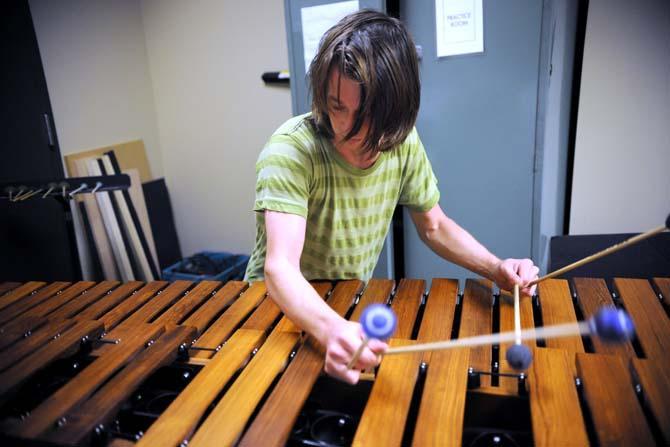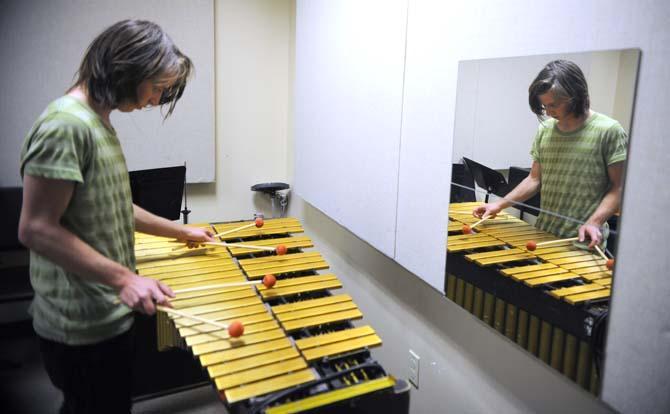Connor Parsons will use his own body as a percussive instrument in one of many experimental pieces he will be performing in a recital Monday at the French House.
Parsons, a philosophy junior, will lead and perform along with a handful of music majors in a show that focuses on modern percussion music. All pieces in the recital were composed within the last 40 years and include various experimental aspects, such as improvisation and spontaneity.
One of the pieces featured in the recital was written by percussion professor Brett William Dietz and is a response to last November’s Sandy Hook tragedy. The piece, “Sandy Hook: 20 Meditations on the Death of Children,” is for solo vibraphone and includes a dedicated movement for each child lost in the tragedy.
Dietz said the piece was written the week of the shooting.
In another piece called “Corporel,” a bare-chested Parsons will pummel himself with his hands to create a sort of man-made rhythm using only his body. “Corporel,” which means “bodily” in French, is by far the most experimental of the songs to be performed and features no traditional instruments, focusing instead on a somewhat violent means of rhythmic expression.
Parsons said the piece can be shocking and somewhat uncomfortable for the audience, but that isn’t necessarily a bad thing.
“Someone needs to be there pushing buttons, someone needs to step outside of the box,” Parsons said.
Because of the sheer intensity the piece demands, Parsons said he occasionally hurts himself while practicing.
Music education junior Josh Stearman is performing with Parsons on “Angels,” a trio for nine triangles, which was written so that each individual performance is unique. Stearman said he looks forward to playing in the show because of the ideal acoustics and atmosphere of the French House.
Other pieces to be played include one written for the marimba, in which the stages of grief are interpreted musically, as well as a piece Parsons himself composed with percussion performance graduate Brian Bell.
Parsons said he’s inclined to this sort of experimental music because of the possibilities it presents.
“It’s interesting because it’s different, and not so obsessed with traditional structure. It’s definitely a little more out there,” he said.
The recital is free and open to the public.
“I think that someone needs to be there pushing buttons, someone needs to step outside of the box.”






